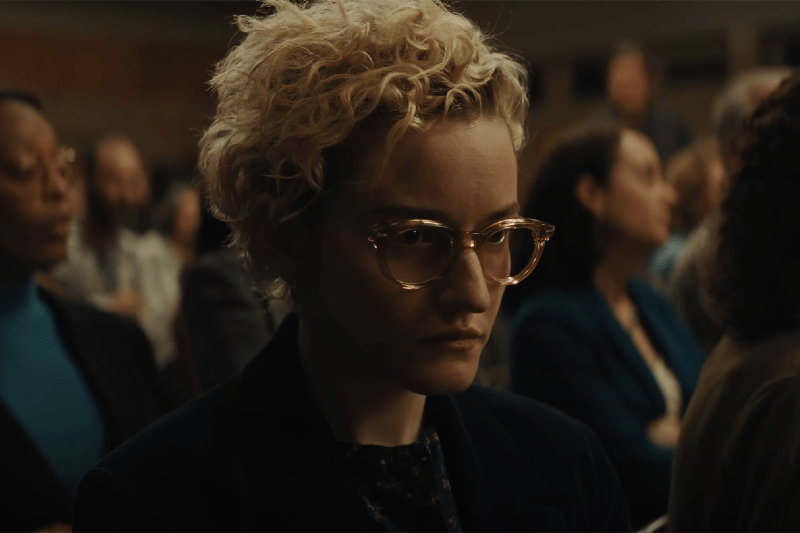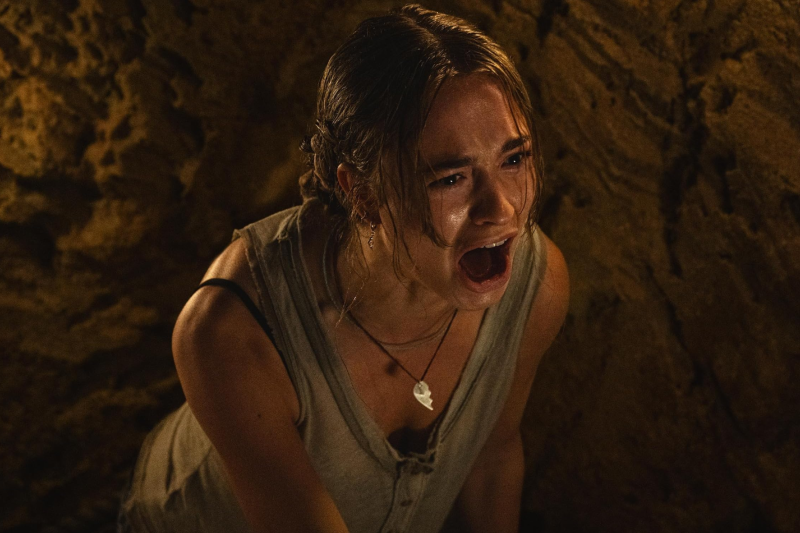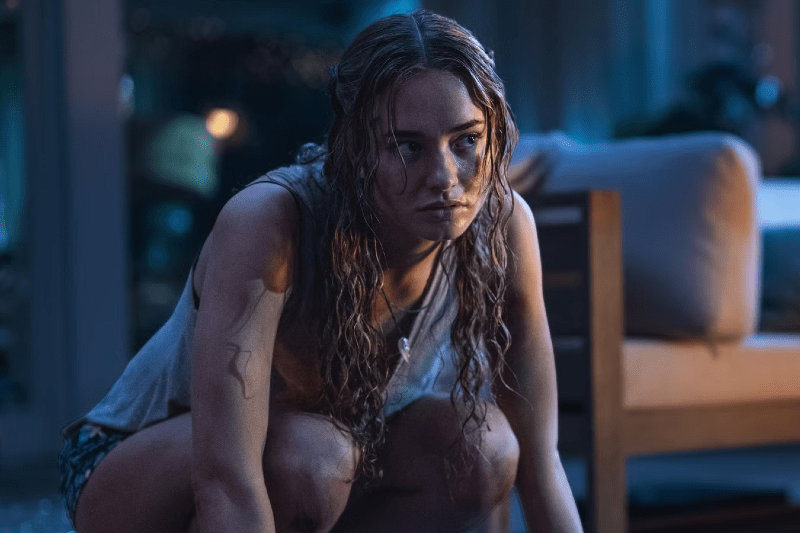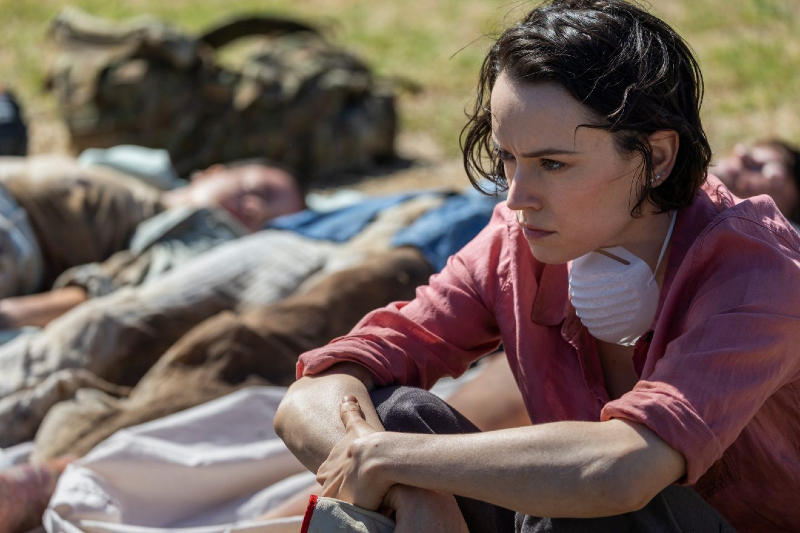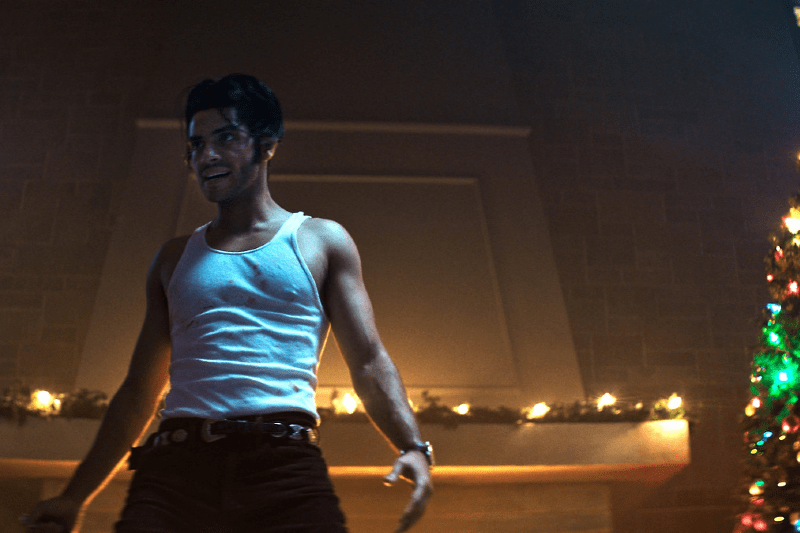It’s hard to make a great first film – but for my money, it’s even harder to avoid a sophomore slump. After a strong debut, audience expectations are sky high, and speeding a second feature through production without years of development can often be a litmus test for how well your aesthetic works onscreen. But if you had been keeping your expectations low for Zach Cregger with Weapons, his much-anticipated follow up to Barbarian, you needn’t have worried. Cregger’s second film proves that the first was not a fluke and establishes him as one of the more ambitious horror storytellers of this generation.
It’s been one month since the disappearance of Justine Gandy’s (Julia Garner) elementary school classroom, and the town of Maybrook, Pennsylvania continues to live in a haze. Gandy herself has become a focal point for angry parents and conspiracy theorists, with Archer Graff (Josh Brolin), father to one of the missing children, taking it on himself to terrorize Gandy at all hours of the day. Meanwhile, any attempts that Gandy makes to speak to Alex (Cary Christopher), her one remaining student, are rebuffed by school administration.
So you’ll forgive Gandy for not coping particularly well with her newfound celebrity. She retreats into the bottle, frequenting her local liquor store and popping into a dive bar on the edge of town. She also seeks friendship – and perhaps something more – from Paul Morgan (Alden Ehrenreich), a local police officer and onetime flame. But as Gandy and Graff continue to put their own forms of pressure on a stalled police investigation, and their paths begin to cross more frequently, they will soon discover that not everything is as it seems in their sleepy small town.
In interviews about his new film, Cregger has described the connection between horror and comedy as "rhythm and subverting expectations.” So while it might not be fair to say that Weapons is a film that only a comedian could make, it’s certainly true that it’s the kind of narrative that a comedian could do best. A surprising percentage of the runtime of Weapons is focused on character relationships outside of the primary investigation; there are long sections when the movie focuses just on the grief and ensuing self-destruction of parents and teachers alike, only to wrap things up with a bang in the movie’s final half-hour.
That rhythm – slow, slow, and then surprise – is a testament to Cregger’s timing as a director. Switching gears from melodrama to spectacle works best by dialing back the former, not (only) turning the latter up to eleven.
Weapons also mimics comedies in its affirmative view of the world. Horrible things happen in Cregger’s movie – both to and by his characters – but Weapons avoids the casual nihilism adopted by so many modern filmmakers. There’s a joyousness to the film’s final beats that serves as a kind of cinematic wish fulfillment. In a world where evils are often obscured from the spotlight and separated from accountability, Weapons crashes towards its grand finale with a lightness that moves beyond the structure of a payoff.
It’s goddamn cathartic.
Which is all to say that structure is everything in Weapons. Cregger has spoken of his film as an homage to Paul Thomas Anderson’s Magnolia, and the film nods to its predecessor in both form – isolated character arcs that slowly intertwine – and the balance between melancholy and absurdity. On the one hand, strip away Cregger’s storytelling conceits and Weapons may feel propped up by its flashy structure; on the other, the form is the narrative, and whatever loose threads or red herrings we find in the film are more a feature than a bug.
But if Cregger has a superpower as a filmmaker – even more than his instincts for structure and timing – it’s his knack for finding the right actors to balance horror and comedy. Weapons is not a horror-comedy, not even close, but the characters in his movies often react to the grotesque with dull-eyed incredulity, and there are scenes with both Brolin and Garner that are as funny as any comedy could hope to be. Weapons also reminds us that Ehrenreich deserves better than a Han Solo-shaped coffin; his character in this is so (intentionally) out of sync with the community around him that it may serve as a delightful bookend to his breakout role in Hail, Caesar!.
With two successful films under his belt, we now have a sense of who Cregger is as a filmmaker. He is a director who thrives on timing, who isn’t afraid to find humor in the grotesque and trusts his audience to stand by him if and when he changes beats midstream. But just as intriguing, he’s a filmmaker who makes original horror movies that play successfully across 3,000 screens on opening weekend. Weapons shows that Barbarian was not a fluke, and horror fans should be thrilled at what else the future holds for the genre’s newest blockbuster auteur. [4/5]
